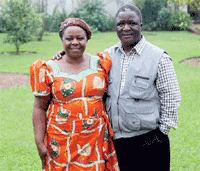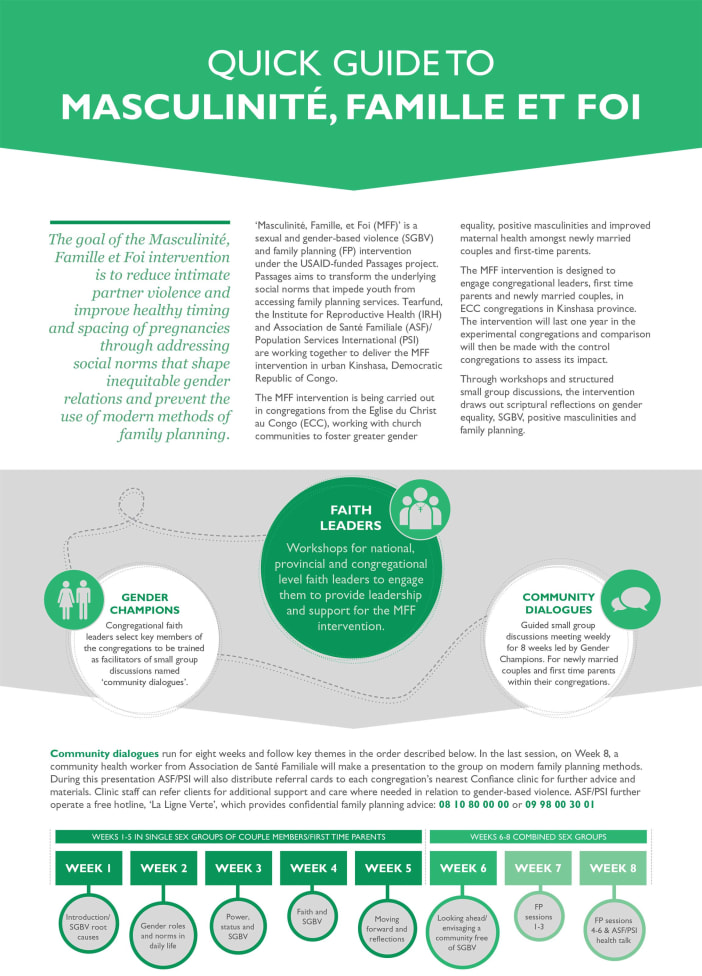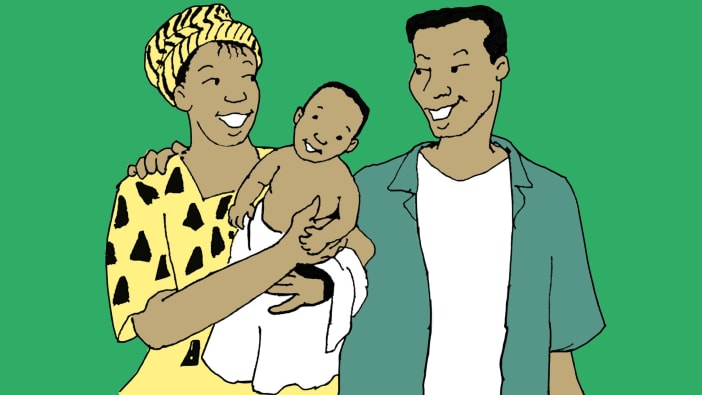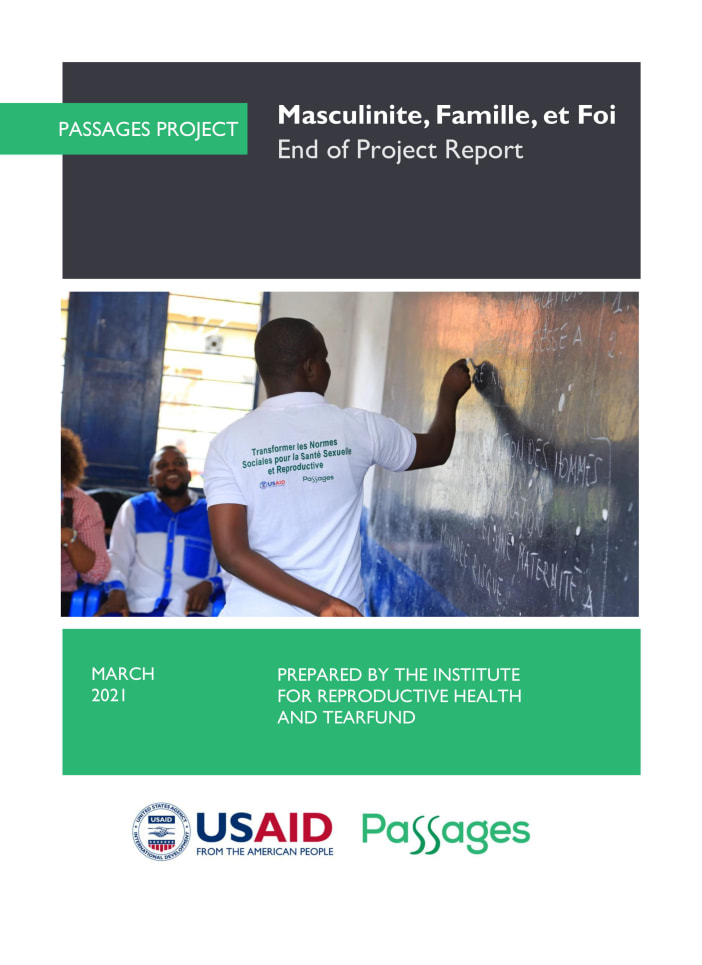Recently, HEAL Africa did a survey of attitudes and behaviour around gender issues in Pangi, Maniema province in the Democratic Republic of Congo. One man told the researcher: ‘I have a happy marriage. I have a peaceful, happy home. My children are well fed and go to school every morning with clean clothes. My wife is my partner in everything I do and she is my biggest supporter.’ But his wife told the same researcher: ‘My husband is always angry and sometimes violent to me. I have no say in decisions. What I earn is not my own. I would never dare to say no to sex.’
Many marriages are like this: the husband thinks it is a good marriage, but the wife is miserable. How can there be so much misunderstanding? A marriage that is good for only one person is not a real marriage. A successful relationship must be mutual, and bring benefit to both partners. Both husband and wife can invest in a happy marriage where their needs are met and their individual personalities are respected. In a good marriage, the relationship grows stronger over the years.
Early marriage
Here in Maniema province, many families negotiate a marriage for their daughters when they are only 12 or 13 years old. This is illegal, but in practice child marriage continues. This means that young girls can be mothers at 14, before their bodies are fully developed. As a result, labour is often long and difficult, and the baby can get stuck in the birth canal and eventually die. Blocked labour can lead to a condition called fistula, where the woman’s body is badly damaged, causing her to leak urine or faeces. This often means they are abandoned by their husbands and become social outcasts.
Obstetric fistulas can be repaired by surgery. Since 2003, HEAL Africa has carried out over 1,000 surgeries, transforming women’s lives so that they can return to their families. While recovering from surgery, women receive counselling, training in family mediation, and the opportunity to learn new skills, such as literacy, sewing, crafts. This means they return to their communities with new knowledge and experience. This gives them confidence and restores self-worth. They have been part of a community and have experienced love and hope, which they bring back home with them.
The role of the church
The church has a powerful voice in many communities and should speak out to highlight harmful traditions and change attitudes. Church leaders, both men and women, can be very effective in encouraging good family relationships. They can help men to view their wives as human beings and as partners, not just as their ‘property’. In eastern Congo, local churches working together have really helped raise awareness in the fight against all forms of sexual violence. We are seeing signs of change. Women counsellors chosen by churches are reaching out to women who have suffered rape. When they speak out against domestic violence and abuse of women, they now speak with the backing of the churches. They tell the community to catch the rapist and make him ashamed, but to surround the woman with love.
Recently a man from a remote area brought his wife to our hospital for treatment after rape. He cared for his wife throughout her treatment, and he also learned to read and write alongside her, and learned to sew. They went home with a sewing machine to start a business together. This is a true partnership and an encouraging sign of changing attitudes.
Partnership
Sexual violence is not just a result of war. Social attitudes and gender inequalities also play a role. Domestic violence is a widespread problem in the Democratic Republic of Congo. Can there be real partnership without equality? If a man wants his marriage to be a partnership, then he should not use his superior strength or use violence to force his wife into submission. Can any woman truly love a man who beats her? Where there is violence, there is fear, not love. Men and women are different. A partnership gives value to what both people bring to the relationship. It can take a lot of talking and listening and patient effort to understand what each person wants and needs in a marriage. Are we able to talk freely about our marriage? Do we know how to listen to each other? The church in Africa has the responsibility to show what God intended for marriage, so that both the husband and wife can tell the researcher honestly, ‘We have a truly happy marriage!’
Lyn Lusi works for HEAL Africa in Goma, Democratic Republic of Congo, as Programme Manager. She has expanded the Learning Centre Hospital’s programme to include family planning, safe motherhood, women against violence, AIDS education and homecare, and community rehabilitation.
Email: [email protected]
Website: www.healafrica.org
Sexual violence
There has been conflict in the Democratic Republic of Congo for over ten years. During this time, the military have often deliberately attacked family life. Hundreds of thousands of women and girls have been raped. When women go to the field to grow food for their families, or into the forest to collect firewood, they are vulnerable to attack.
HEAL Africa (Health, Education, community Action, and Leadership development) has an outreach programme to victims of rape, offering counselling and treatment. Specialists go to rural clinics to train local doctors in how to care for women who have been raped. A nurse delivers medicines and post-rape treatment kits. In remote areas, village women are trained to become counsellors who can refer women victims of sexual violence for treatment. Serious cases come back to Goma for operations. It is not just a question of providing medical treatment – people who have been raped need emotional healing too.
Social attitudes
One of the most difficult issues is tackling social attitudes. If it is known that a woman has been raped, even though it is not her fault, she is made to feel ashamed. Often her husband will reject her. She is considered to be defiled, and no longer worthy to live in the family home. Through this undeserved stigma she bears not only the pain of the attack, but also the double pain of humiliation and rejection. There needs to be more recognition that rape is always a crime, and that women who are raped are not guilty, and need help and support.
Discussion questions
- Discuss what you expect in a ‘perfect’ marriage. It may be helpful for men and women to discuss this separately first and then come together to share their conclusions. What are the differences between what men and women expect in marriage?
- Do you know of any couples whose marriage relationship you admire? What is different about their relationship? Can you gain advice and learn from them?
- What does the Bible say about marriage? Study these passages: 1 Corinthians 7:1-5, Ephesians 5:21-33 and Genesis 1:27-2:25.
- If a couple can’t have children, how does it affect their marriage, or their status in the community? If they do have children, does the sex of the children matter? What is God’s perspective?
- Do we give each other enough time as a couple – to relax together, to enjoy each other’s company, to read and pray together? How could we make more time for this?
- When people in our community are having problems with their marriage, who can they turn to for wise support and advice?
- Does our church provide support and help for married couples and for couples preparing for marriage? Would this be helpful? If so, how could this be done?










